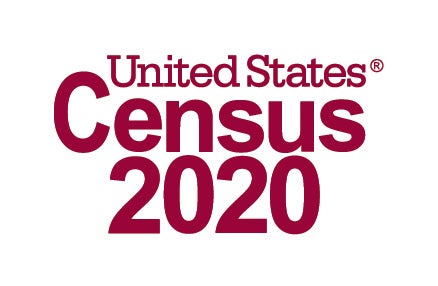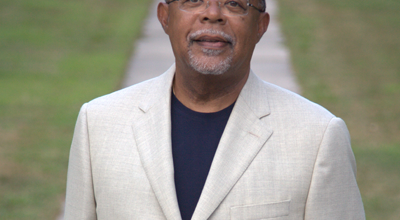Danville officials briefed on importance of Census
Published 6:20 pm Wednesday, February 26, 2020
SO YOU KNOW
Visit 2020census.gov for more information. Census forms will not be available online until the week of March 12, which can be completed after households receive passcodes in the mail.
A “partnership specialist” with the U.S. Census Bureau spoke to the Danville City Commission and audience Monday night, explaining how important the upcoming count is — and exactly why everyone should care.
Dani Rogers was introduced to the crowd by Boyle County Magistrate Jamey Gay, who said the Cenus count is “probably the most important thing that will happen this year, since we live with these numbers” for the next decade. He said Rogers has been a “tremendous resource with our Census committee,” a local group of people assembled to help the community “make sure everyone gets counted.”
Rogers explained that the count affects the over $675 billion in federal funding that’s given out each year, and the Census is a tool used to ensure those funding dollars “come back to communities that need that money over the course of the next 10 years … That’s why it’s extremely important for everybody to be counted.”
For the first time, this year’s Census count can be completed online, she said, starting March 12.
“Everyone will be receiving something in the mail that has a personal passcode for your house,” Rogers said. It’s important that it’s filled out representing everyone who’s living under that roof, regardless of relationship.
“You can get it done in four minutes, and no one will come visit you.”
The Census includes nine questions, which Rogers says is nothing in this day and age — “You probably have more than that about yourself on social media.”
Rogers said something that prevents some people from completing their Census answers is the idea that the information may be used for other reasons.
“It’s secure; any information you give us is confidential,” she said.
The questionnaire doesn’t require social security numbers or financial information, she said. All of the information given is protected by Title 13 of the Census Code, and Census workers are all under an “oath we’ve taken for life,” Rogers said. They face penalties of five years in prison and $250,000 in fines if they violate their oaths.
“No law enforcement agency can use it against you, landlords can’t get ahold of it, ICE can’t get it, Homeland Security can’t get it. Local police can’t get that information. It’s forbidden (to share) by law,” she said.
Rogers said whatever information is gathered is “private for 72 years,” and is stripped of “all identifying factors. So it’s all stacks by the time it leaves our department. Your information really is protected.”
For those who don’t fill the questionnaire out — either by going online, via phone or by mail — there will be five different reminders going out, from mid-March up to the end of April. “May is when people will knock on doors …” Rogers said, hitting those up who have not responded.
Rogers said students living on campuses generally won’t have to complete one individually. The Bureau has an operation team that will be working with housing on campuses, as well as others in group quarters, like senior living and detention centers, for example.
“If you live off campus and are away from the college, you will receive something that needs to be filled out, showing everyone who lives there. Parents with students who are living away from home, you do not count them because it splits the money that comes back. They will be counted where they are living,” Rogers said.
The biggest groups of people who don’t get counted are kids under the age of 10, as well as veterans and seniors, those in rural communities and with lower incomes. “There’s a host of different, hard-to-count communities,” Rogers said, so a lot of different local organizations will open up their establishments to offer computers to those who don’t have one.
Rogers says the team is also trying to amp up its volunteer support, which Magistrate Gay said anyone can reach out to him on to find out more.
“And we will need people knocking on those doors …” Rogers said, which pays $16 an hour and .58 cents per mile, is paid weekly and can be done in full-time or part-time, flexible-hour shifts. Anyone interested in applying to be a counter — who is at least 18, a U.S. citizen and can pass a background check — may visit 2020census.gov/jobs to fill out an application.
“The overall goal — it’s because of the money. The resources we need for transportation … if you like paved roads … If you don’t care about government assistance or housing, or all these things that are funded by the over $675 billion, it still affects you on a day-to-day basis,” Rogers said. “We still use hospitals and schools. The numbers being captured will be used for the next 10 years. The 200 extra kids who show up to school that didn’t get counted? There’ll be no budget for them. We need the right amount of people (counted) to cover the amount of people who are using (services funded).”
Mayor Mike Perros asked Rogers to touch on how the count can affect the state legislatively. She said the count gives “the opportunity to potentially gain a seat in the House of Representatives — there are over 435 seats in the House, which can be redistributed based on the population count. It also helps with redistricting, so local officials are very keen in getting these right because it can mean you lose certain elected officials, or gain more elected officials based on how the population booms.”
Commissioner Denise Terry asked what parents do in the case of shared custody. Rogers said April 1 is “Census Day,” and for those who have houses in different states and split their time, “wherever you are on that day is where you need to be counted. It’s the same with split custody — wherever those kids are on April 1, 2020” is where they’re counted. “The same with foster kids. That day is the default.”







